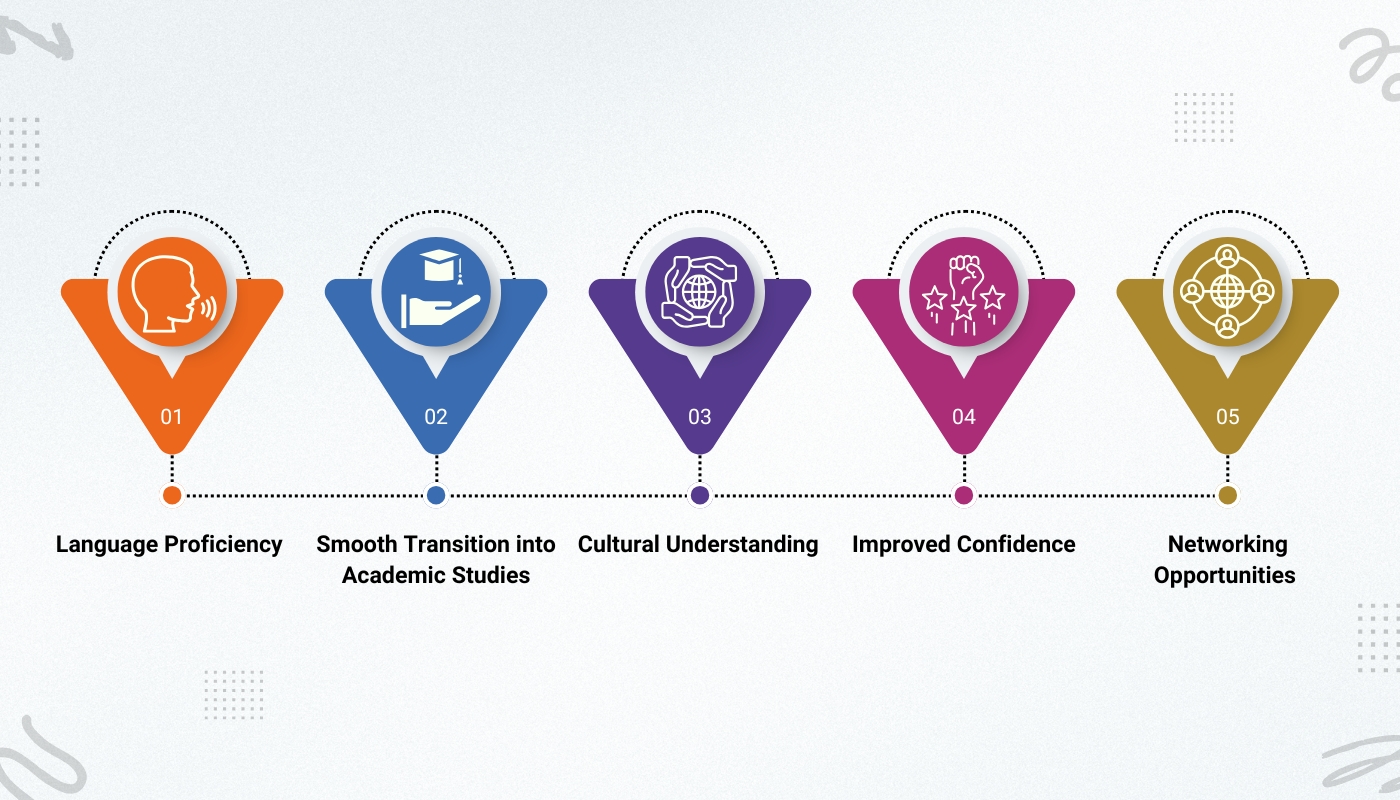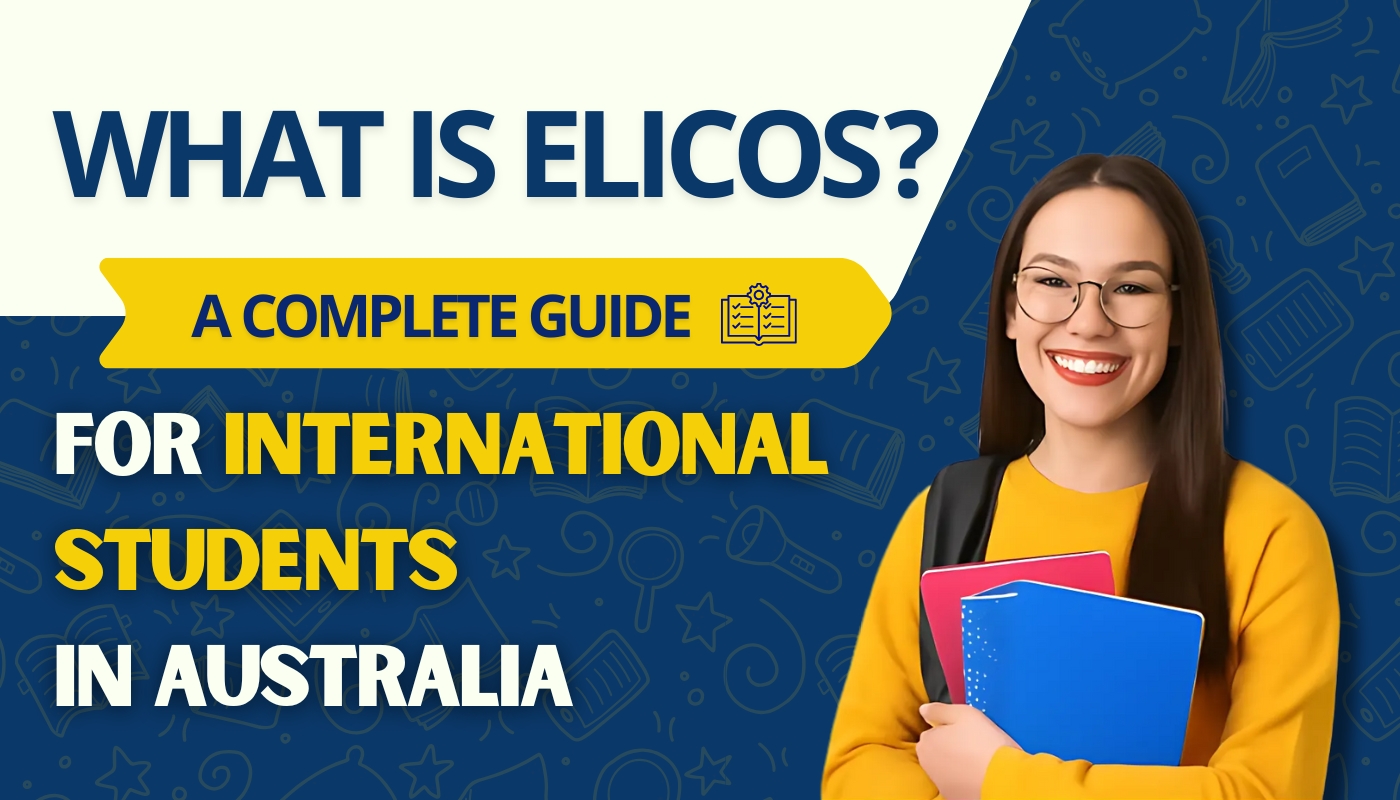Australia is globally renowned for its high-quality education system and diverse cultural environment. One of the key stepping stones for international students aiming to pursue further education in Australia is the ELICOS program. If you’re planning to study in Australia, understanding ELICOS is crucial. In this detailed guide, we’ll walk you through what ELICOS is, who it’s for, the benefits it offers, and how it plays an essential role in your academic and professional journey in Australia.
What is ELICOS?
ELICOS stands for English Language Intensive Courses for Overseas Students. These are specially designed, comprehensive English language programs tailored for international students from non-English-speaking backgrounds who are planning to study, work, or live in Australia. The main goal of ELICOS is to help these learners develop the English language skills they’ll need to thrive in Australian academic settings or professional workplaces where English is the primary language of communication.
ELICOS programs do more than just teach basic English—they’re focused on strengthening all the key language skills, including reading, writing, listening, and speaking. These courses are often a necessary first step for students planning to enrol in Australian universities, TAFE institutes, or other higher education pathways. In many cases, achieving a particular score in an English proficiency test such as IELTS, TOEFL, or PTE is a requirement for admission, and ELICOS provides a solid foundation to help students meet those standards.
Unlike general English courses offered elsewhere, ELICOS programs are governed by the Education Services for Overseas Students (ESOS) Act. This ensures that all providers meet strict quality standards and deliver a supportive, well-structured learning experience for international students. To deliver ELICOS, institutions must be registered on the Commonwealth Register of Institutions and Courses for Overseas Students (CRICOS), which guarantees compliance with national education and student welfare standards.
A wide range of providers across Australia offer ELICOS programs, including universities, government-funded TAFE colleges, and private accredited English language schools. Course lengths and intensity can vary depending on a student’s current English level, their long-term goals, and visa conditions. While many students take ELICOS to meet university entry requirements, others enrol to sharpen their English for work or daily life in Australia.
Beyond academics, ELICOS also offers a rich, culturally immersive experience. Many programs include excursions, workshops, and real-life activities that allow students to use English in everyday settings. These opportunities help learners build confidence, make new friends, and better understand Australian culture.
In essence, ELICOS plays a vital role in preparing international students for life in Australia—academically, professionally, and socially. By offering high-quality language education within a supportive and engaging environment, these courses ensure that students are both linguistically and culturally equipped to take on their next chapter Down Under.
Who Needs ELICOS?
ELICOS is suitable for a range of learners, including:
- Students applying for further academic courses in Australia (such as certificates, diplomas, undergraduate, and postgraduate degrees)
- Individuals applying for student visas who don’t yet meet the English language proficiency requirements
- Professionals aiming to improve workplace communication skills in English
- Migrants and refugees looking to integrate better into Australian society
Types of ELICOS Courses
ELICOS courses are categorised based on learner goals. The main types include:
- General English – Focused on improving day-to-day communication skills.
- English for Academic Purposes (EAP) – Prepares students for higher education in Australia.
- English for Specific Purposes (ESP) – Tailored for industry-specific communication (e.g., business, hospitality).
- Exam Preparation Courses – Designed to prepare students for exams like IELTS, TOEFL, and PTE.
- Study Tour Programs – Short-term English courses combined with tourism and cultural immersion.
Duration of ELICOS Courses
The length of ELICOS courses can vary from 5 weeks to over 40 weeks depending on the student’s existing English proficiency and future academic goals. Typically, courses run 20-25 hours per week, offering a mix of classroom-based learning, interactive sessions, and self-study time.
Entry Requirements
While there are no strict entry requirements for ELICOS courses, most institutions assess students’ English levels through placement tests to determine the appropriate starting point. These courses are open to students with beginner to advanced English skills.
ELICOS and the Student Visa (subclass 500)
To apply for a student visa in Australia, students must demonstrate a certain level of English proficiency. ELICOS can serve as a pathway to meeting those requirements. Enrolling in an ELICOS course shows the Department of Home Affairs that you are committed to developing your English skills and preparing for academic life in Australia.
Key Benefits of ELICOS Courses

- Language Proficiency – Build strong English reading, writing, listening, and speaking skills.
- Smooth Transition into Academic Studies – ELICOS courses are often prerequisites for further studies in Australia.
- Cultural Understanding – Students become familiar with Australian customs, values, and learning styles.
- Improved Confidence – Gain the confidence to participate in academic discussions, presentations, and group projects.
- Networking Opportunities – Meet students from around the world and form international friendships.
Career Opportunities After ELICOS
While ELICOS itself is not a job-ready program, completing it improves your communication skills and enhances employability in sectors such as customer service, hospitality, tourism, and administration. Furthermore, it opens doors to vocational training and university-level studies, which can significantly boost your career prospects.
Related Policy Guidelines
Before enrolling, it’s essential to review the institutional policies governing ELICOS courses. You can find comprehensive guidelines and documentation at ELICOS Policies by VET Resources.
This resource outlines the standards and expectations from students and providers, including assessment methods, attendance requirements, and course outcomes.
Why Choose Australia for English Language Study?
- Global Recognition: Australian education providers maintain high-quality standards and are recognised worldwide.
- Multicultural Environment: With students from over 190 countries, you’ll experience diverse cultural exposure.
- Safe and Student-Friendly Cities: Australia consistently ranks as one of the safest countries for international students.
- Opportunity for Pathways: Completion of an ELICOS course is often the first step toward TAFE qualifications, university degrees, or professional courses.
Final Thoughts
ELICOS programs offer more than just English lessons—they lay the groundwork for a successful academic, professional, and social life in Australia. Whether you’re preparing to enter university, looking to boost your career opportunities, or simply wanting to communicate with confidence in everyday situations, ELICOS is the ideal starting point. Tailored to meet the diverse needs of international students, these courses equip you with the language skills and cultural understanding essential for thriving in an Australian setting.
If you’re considering enrolling in an ELICOS course, be sure to review both institutional policies and course objectives to ensure they align with your goals. Start your journey with confidence by visiting the ELICOS Policies resource for more insights.
Disclaimer:
The information presented on the VET Resources blog is for general guidance only. While we strive for accuracy, we cannot guarantee the completeness or timeliness of the information. VET Resources is not responsible for any errors or omissions, or for the results obtained from the use of this information. Always consult a professional for advice tailored to your circumstances.






